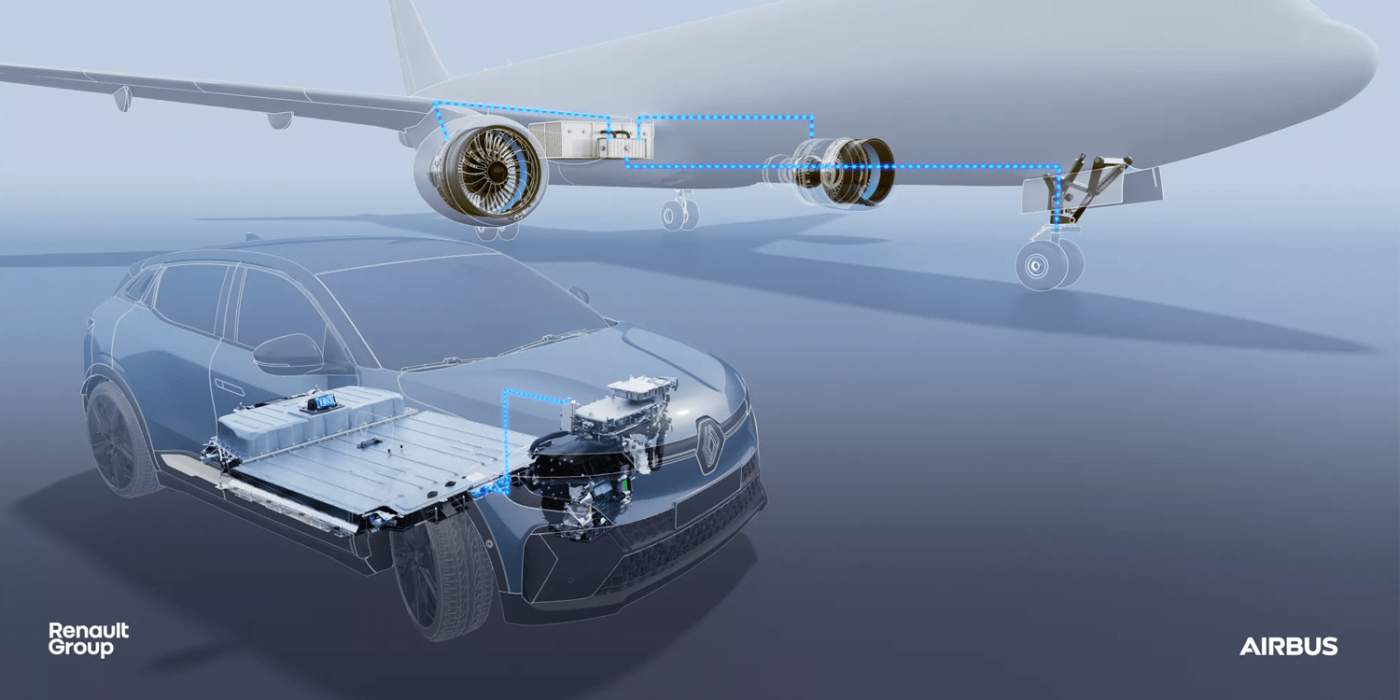Renault & Airbus sign battery cooperation
Airbus and Renault Group have signed a research and development agreement to combine their respective competencies to develop better batteries for electric cars and hybrid electric aircraft.
This will focus on optimising energy management and reducing battery weight, according to the announcements. In addition, the partners want to look for the “best ways to move from the current lithium-ion cell chemistry to solid-state batteries, which could double energy density by 2030”.
In addition to the technical aspects of batteries in vehicles or aircraft, the focus will also be on their sustainability. The joint work will “examine the entire life cycle of future batteries from production to recyclability”. The aim is not only to determine and evaluate the CO2 footprint of a battery over its entire life cycle, but also to prepare “the industrialisation of future battery designs”.
However, the companies are not yet more specific in their communications. The level at which the development cooperation is to take place and the financial and personnel resources with which the work is to be carried out are not known.
“For the first time, two European leaders from different industries, are sharing engineering knowledges to shape the future of hydrid-electric aircrafts. Aviation is an extremely demanding field in terms of both safety and energy consumption, and so is the car industry,” says Gilles Le Borgne, executive vice president for engineering at Renault Group. “At Renault Group, our 10 years of experience in the electric vehicle value chain gives us some of the strongest feedback from the field and expertise in the performance of battery management systems.”
Sabine Klauke, Airbus Chief Technical Officer, is particularly hoping to “mature” the next generation of batteries for Airbus as part of the partnership. “Bringing together Renault Group’s experience in electric vehicles with our own track record in electric flight demonstrators will allow us to accelerate the development of the disruptive technologies required for future hybrid aircraft architectures in the 2030s and beyond,” she said.





0 Comments